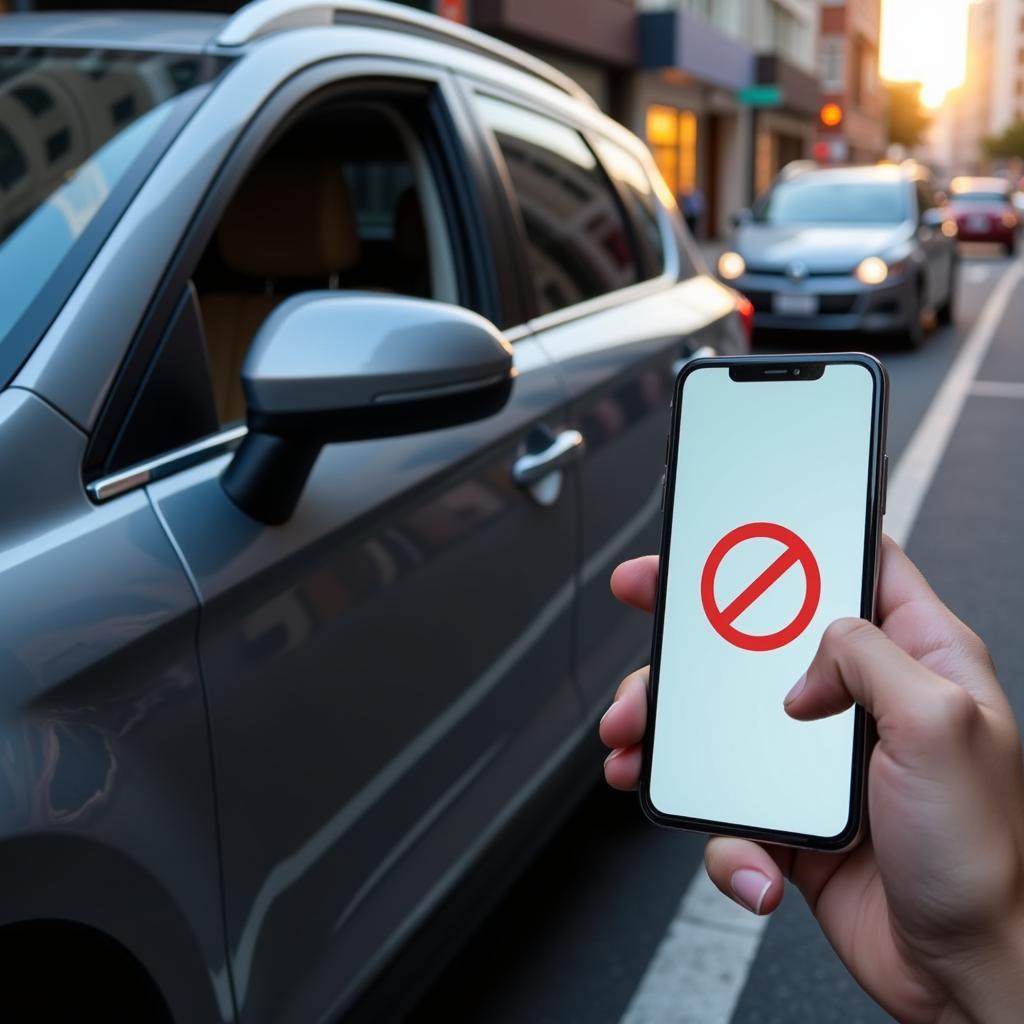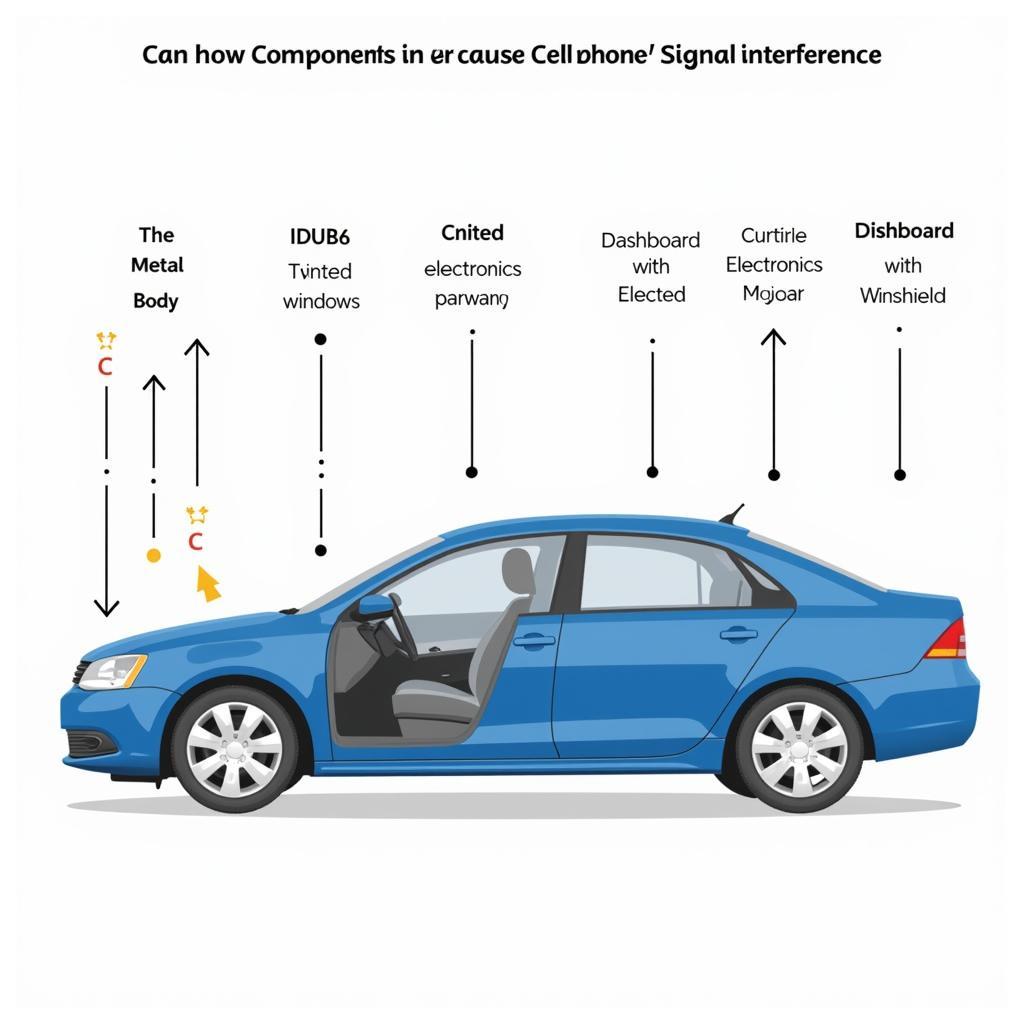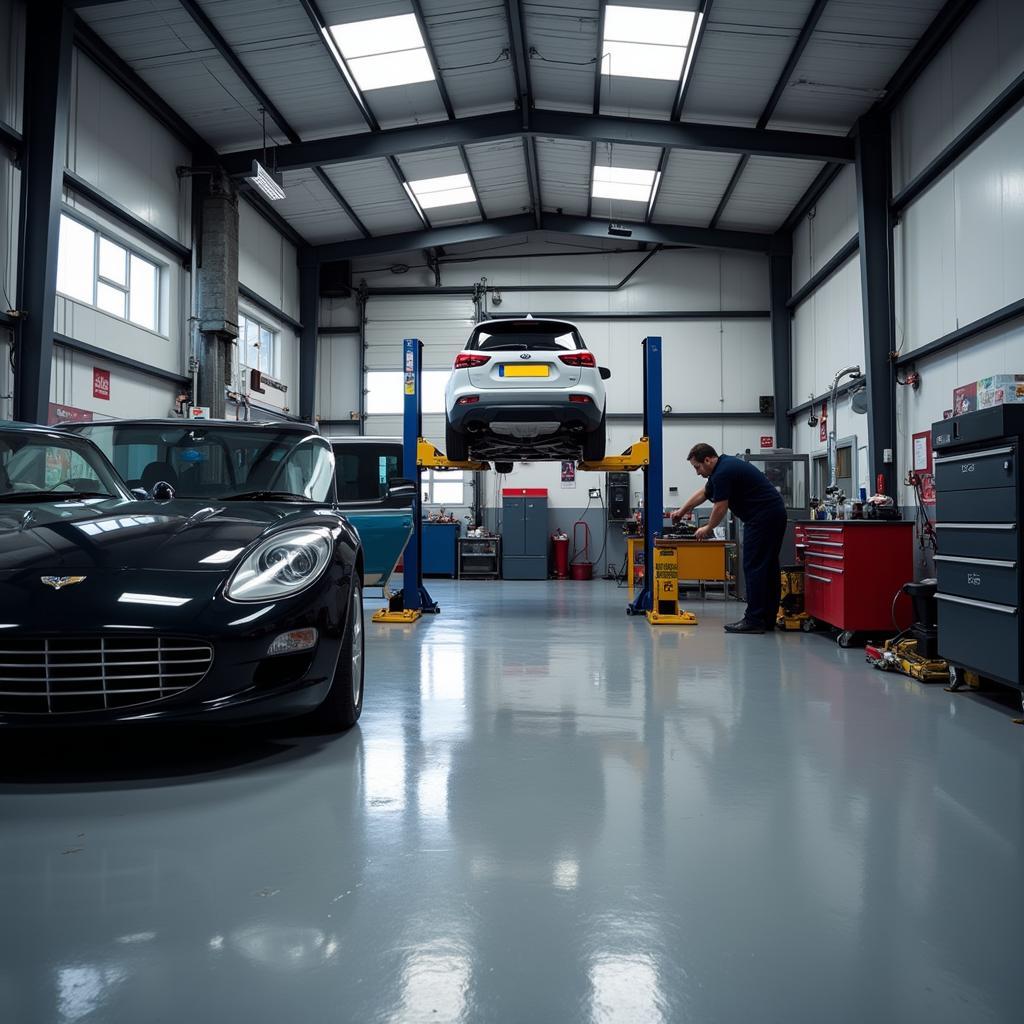Why My Car Blocks Cell Service?
Have you ever noticed your cell phone signal dropping out or becoming unreliable while driving? You’re not alone. Many car owners have experienced the frustrating phenomenon of their cars seemingly blocking cell service. But why does this happen?
This article will delve into the common reasons why your car might interfere with your cell phone’s reception. We’ll explore the science behind signal interference, the materials used in car construction that can impact signal strength, and offer practical tips to help you improve cell service in your vehicle.
Understanding Cell Phone Signals and Interference
Cell phones communicate with cell towers using radio waves. These waves are a form of electromagnetic radiation that can be absorbed, reflected, or diffracted by various materials. When a cell phone signal encounters an obstacle, its strength can be weakened, leading to dropped calls, slow data speeds, or poor reception.
 Car Blocking Cell Phone Signal
Car Blocking Cell Phone Signal
Several factors can cause interference with cell phone signals inside your car:
- Metal construction: Cars are primarily made of metal, an excellent conductor of electricity. This conductive property allows metal to absorb and reflect radio waves, creating a Faraday cage-like effect that weakens cell signals.
- Tinted windows: Some types of window tinting contain metallic particles that can interfere with radio waves, further reducing signal strength.
- Car electronics: The electronic systems within your car, such as the radio, GPS, and Bluetooth devices, also emit electromagnetic waves that can potentially interfere with cell phone signals, especially in older car models with less sophisticated electromagnetic compatibility (EMC) design.
- Distance from cell towers: Signal strength naturally weakens with distance. If you’re driving in a rural area or a location with limited cell tower coverage, you’re more likely to experience dropped calls and poor reception.
- Terrain and surroundings: Hills, mountains, tall buildings, and dense foliage can all obstruct cell phone signals, leading to weak or unreliable reception.
Common Culprits: Car Features That Can Block Cell Service
While the overall metal structure of a car contributes to signal blockage, certain car features can be particularly problematic:
- Windshields with embedded metal: Many modern cars have windshields with metal oxide coatings for defogging, UV protection, or embedded antennas for radio or satellite systems. These metallic elements can significantly hinder cell signal penetration.
- Metalized window tint: As mentioned earlier, some window tints use metallic particles for heat reflection and UV protection. While effective for their intended purpose, these tints can create a barrier for cell phone signals.
- Built-in car phone systems: Older cars with built-in car phone systems might utilize frequencies that overlap with those used by modern cell phones, leading to potential interference.
 Factors Affecting Cell Phone Signal In Car
Factors Affecting Cell Phone Signal In Car
How to Improve Cell Phone Reception in Your Car
Despite the challenges, there are several steps you can take to improve cell service while driving:
- Use a car phone mount: Elevating your phone using a dashboard or windshield mount can help it receive a stronger signal, as it’s less likely to be surrounded by signal-blocking materials.
- Switch to speakerphone or Bluetooth: Using your car’s Bluetooth system or speakerphone option can improve call clarity, as these systems often have external antennas that can receive stronger signals.
- Consider a cell phone signal booster: A signal booster amplifies weak cell signals, improving reception and reducing dropped calls. These devices come in various types, including portable boosters that plug into your car’s cigarette lighter.
- Drive to areas with better coverage: If possible, try to avoid driving in areas known for poor cell reception, or plan your route to pass through areas with better coverage.
Conclusion
Understanding why your car might be blocking cell service can help you take steps to improve reception. By being aware of the factors that contribute to signal interference, utilizing available tools and techniques, you can enjoy clearer calls and a more reliable connection while on the road. Remember, a strong cell phone signal is not only about convenience but also about safety, allowing you to stay connected in case of emergencies.
FAQs
1. Does the type of cell phone I have affect signal strength in a car?
Yes, the design and antenna quality of your phone can impact signal reception. However, even with a high-end phone, you might experience signal issues due to factors related to your car and surroundings.
2. Can I get a window tint that doesn’t block cell service?
Yes, ceramic window tints are an excellent alternative to metallic tints. Ceramic tints offer heat rejection and UV protection without interfering with cell signals.
3. Are cell phone signal boosters legal?
Yes, cell phone signal boosters are legal in many countries, but it’s essential to check local regulations and choose a booster that complies with FCC guidelines.
4. Do all cars block cell service to the same extent?
No, the degree of signal blockage can vary depending on the car’s make, model, year of manufacture, and the specific materials used in its construction.
5. Can I improve cell service in my car without buying any additional devices?
Yes, simply relocating your phone within the car, such as placing it on the dashboard or near a window, can sometimes improve reception.
Still Having Trouble?
If you’re experiencing persistent cell service issues in your car and need further assistance, don’t hesitate to contact our team of experts. We’re here to help you diagnose and address any underlying problems that may be affecting your car’s electronics and connectivity.
Contact us:
WhatsApp: +1(641)206-8880
Email: [email protected]
Our customer support team is available 24/7 to answer your questions and provide technical support.

